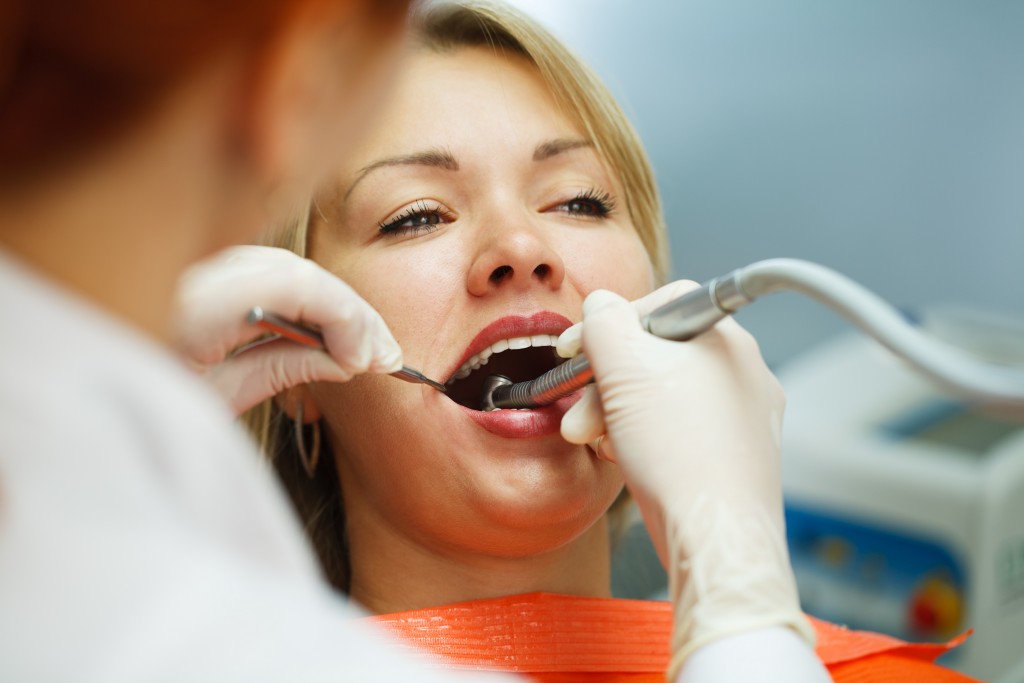Many people are still afraid of going to regular dental visits. The thought of syringes and painful tooth extraction often comes to mind, plus the fact that you have to open your mouth wide for the dentist to probe inside. It can be self-conscious sitting on that dental chair.
About 36% of Americans have some degree of dental anxiety, with a further 12% suffering from extreme fear. In this article, we will discuss the phenomena of Dental Anxiety and the reasons behind the prevalence of this anxiety in adults. Moreover, we will also mention services available for people suffering from dental anxiety.
So, read on for a dazzling smile without fear!
What is Dental Anxiety?
Anxiety is a term associated with physical or emotional response to an anticipated threat. This threat doesn’t have to be physically present. Just the perceived idea of an uncomfortable situation can provoke feelings of uneasiness and trepidation.
With dental anxiety, physical and emotional responses of fear can range from overwhelming feelings of nervousness and worry to restlessness.
Dental fear and anxiety are a cause for serious concern. People get cold feet before visiting a dentist and often postpone their check-ups for years. This delay can worsen a minor dental issue, which then escalates into a severe orthodontic illness.
Reasons for Dental Anxiety
You suffer from dental Anxiety if you experience the following during your dental visits:
- low blood pressure
- excessive sweating
- increased palpitations
- fainting
- visible distress
Continuing on, the following reasons may be behind a person’s dental anxiety:
Fear of Pain
Many people are reluctant to visit a dentist because they fear the pain associated with dental procedures. This fear may stem from prior unpleasant and painful dental experiences. Furthermore, fear of the unknown makes up for a frenzied patient right before a dental visit.
Fear of Dental Equipment
If you are hesitant to visit a dentist just because of that scary-looking equipment, then you are not alone. A report released by Harvard Health Publishing stated that approximately 13 to 14 percent of the population fears having orthodontic appliances or braces.
Other forms of dental equipment such as sharp needles, syringes, a dental drill, or a suction tube also make patients alarmed and anxious. People often imagine the worst-case scenarios of either their tongue getting pierced or extreme blood loss during a procedure.
Uncomfortable Waiting Period
Many people also fear helplessness while lying on a dentist’s chair. They feel uncomfortable while keeping their mouth wide open during a procedure.
These periods of discomfort may cause patients to feel nervous and incite anxiety. Moreover, they might feel that their privacy is compromised during dental treatment.
Previous History of Mental Issues

Patients suffering from existing disorders such as depression, anxiety, bipolar disorder, schizophrenia, or head and neck trauma can also experience dental anxiety. Such patients should seek psychological assistance before visiting their dentists.
Types of Services Available for People with Dental Anxiety
Modern orthodontics is evolving to meet the growing demands of patients. There are now various services available to assist people with dental anxiety.
Hence, if you are apprehensive about visiting a dentist, you can always ask your practitioner about the following orthodontic procedures to ease your anxiety.
1. Laser Dentistry
Laser dentistry is a modern and innovative orthodontic procedure. With a laser, thin concentrated thermal beams are generated that target specific areas in your mouth. These laser beams help in correcting uneven gums and tissues without inducing any pain to the patient.
This method is safe, convenient, and comfortable. They ensure a relaxed dental experience so that patients who suffer from dental anxiety remain calm and collected.
The next time you visit your dentist for swollen gums or cavities, you can ask for a laser dental treatment and have a relaxed day at the clinic.
2. Sedition Dentistry
Dentists use sedatives to calm patients before their treatment. Sedatives are pharmacological agents that suppress your central nervous system’s areas associated with pain or anxiety.
As a patient is calmed, dentists then proceed with the procedures. Sedatives can range from mild to extreme depending upon the patient’s need.
Fear No More!
Dental anxiety and fear are common in many people around the world. Nevertheless, with modern dentistry and ever-evolving orthodontic practice, fear of dentists is becoming a thing of the past. If you haven’t been to see your dentist for a long time, it’s time to make that appointment and experience for yourself a more comfortable and (almost) pain-free treatment.
After all, neglecting your dental health may lead to more serious oral problems. And that would be more painful.


